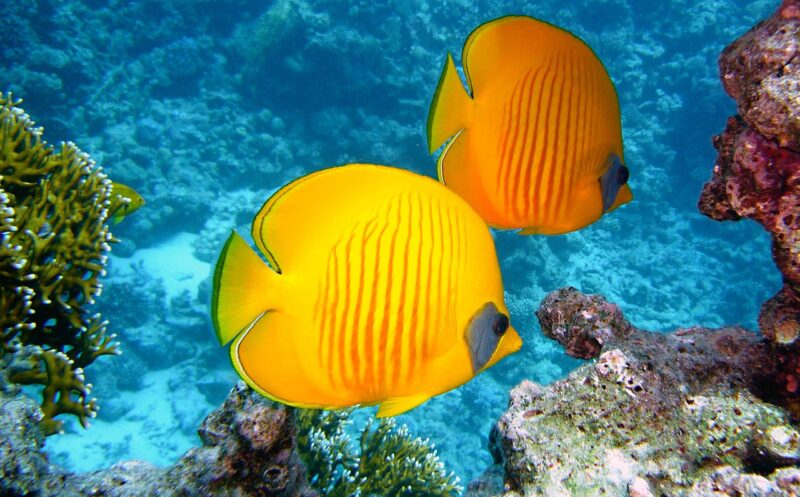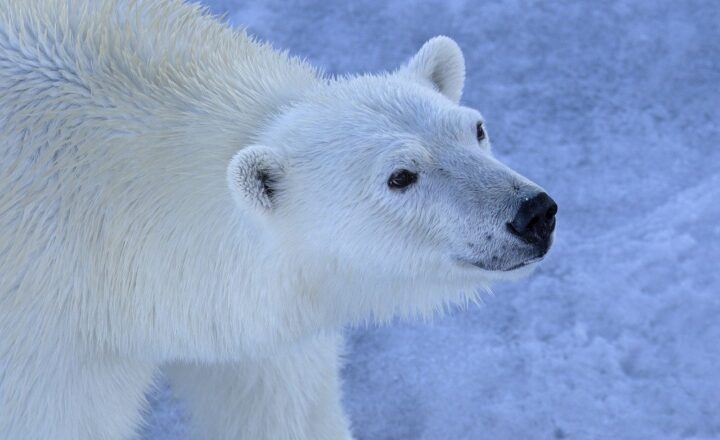How Climate Change Is Affecting Coral Reefs and the Marine Species that Depend on Them
November 14, 2024

Coral reefs are one of the most vibrant ecosystems on our planet, boasting an astonishing diversity of marine life. Often referred to as the “rainforests of the sea,” these underwater marvels provide essential habitats for countless species. Unfortunately, they are now facing unprecedented threats due to climate change, leading to dire consequences for marine biodiversity and the health of our oceans. This article delves into how climate change is impacting coral reefs and the myriad species that rely on these ecosystems for their survival.
1. Introduction to Coral Reefs
Coral reefs are formed by coral polyps, tiny marine animals that create calcium carbonate structures over thousands of years. These reefs serve as critical habitats for marine species, providing shelter, food, and breeding grounds. Covering only about 0.1% of the world’s oceans, coral reefs support 25% of all marine life, emphasizing their importance in global biodiversity.
2. The Impact of Climate Change on Coral Reefs
Climate change presents a multitude of challenges to coral reefs worldwide. Some of the most significant impacts include:
- Ocean Warming: One of the primary effects of climate change is rising sea temperatures. Corals are sensitive to temperature changes, with even a rise of 1°C above normal levels leading to coral bleaching, where corals expel the algae (zooxanthellae) that live within their tissues, resulting in a loss of color and vital nutrients.
- Ocean Acidification: Increased levels of CO₂ are leading to higher acidity in ocean waters. This acidification reduces the availability of carbonate ions necessary for corals to build their calcium carbonate skeletons, hindering growth and recovery from damage.
- Increased Storm Intensity: Climate change contributes to more frequent and intense storms, leading to physical damage to coral reefs. Storm surges can break apart corals and disrupt the delicate ecosystems they support.
- Changes in Sea Levels: Rising sea levels can inundate coral reef habitats, especially in shallow areas. This not only affects the corals but also alters the light availability crucial for photosynthetic organisms living in the reef ecosystem.
As these factors interact, they push coral reefs closer to their limits, leading to widespread declines in reef health and survivability.
3. Consequences for Marine Species
The degradation of coral reefs has devastating implications for marine species, including:
- Loss of Habitat: Many marine species, from fish to invertebrates, rely on coral reefs for shelter and breeding grounds. As reefs decline, these species face habitat loss, leading to diminished populations and, in some cases, extinction.
- Reduced Food Sources: Coral reefs are not only homes but also crucial feeding grounds for many marine creatures. The loss of healthy coral leads to reduced availability of prey species, affecting the entire food chain.
- Increased Competition: As reef ecosystems destabilize, species may be forced to compete for limited resources, leading to further declines in biodiversity and overall reef health.
- Impact on Fisheries: Economically important fisheries are often supported by coral reefs. As reefs deteriorate, fish stocks decline, negatively affecting local fishermen and communities that rely on these resources for their livelihoods.
The interconnectedness of coral reefs and marine life highlights the urgent need to address climate change and its impacts on these vital ecosystems.
4. Coral Bleaching Events: The Warning Signs
Coral bleaching is a clear indicator of climate change affecting reefs. During bleaching events, corals become pale or white due to the loss of symbiotic algae. These events can have devastating consequences:
- Increased Mortality Rates: When corals bleach, they become more susceptible to disease and mortality. Prolonged bleaching can lead to widespread reef death in affected areas.
- Inability to Recover: Bleached corals may struggle to recover, especially in warmer waters or other environmental stresses such as pollution. This can lead to a decline in reef structure and health over time.
- Potential for Algal Overgrowth: Healthy corals compete with algae for space. If corals die or weaken due to bleaching, algae may overgrow the reef, further inhibiting coral growth and recovery.
Monitoring coral bleaching and taking proactive measures can help mitigate these detrimental effects, allowing for recovery efforts to be more successful.
5. Protecting Coral Reefs: Steps Forward
Addressing climate change and protecting coral reefs require immediate and sustained action. Steps that can be taken include:
- Marine Protected Areas (MPAs): Establishing MPAs can help safeguard vulnerable reefs from human pressures, allowing ecosystems to recover and thrive without additional stresses from fishing, tourism, or coastal development.
- Reducing Carbon Footprint: Global efforts to reduce greenhouse gas emissions are essential to slow the impacts of climate change on ocean temperatures and acidity levels. Transitioning to renewable energy sources can significantly help in reducing emissions.
- Sustainable Practices: Encouraging sustainable fisheries and tourism activities can minimize harmful impacts on coral ecosystems. Responsible tourism practices help protect reef environments while educating the public on their importance.
- Restoration Efforts: Active restoration projects that replant corals and restore damaged reefs can help enhance resilience against climate change, contributing to the overall health and functionality of marine ecosystems.
Through concerted efforts, we can mitigate the effects of climate change on coral reefs and protect the marine species that depend on them.
6. Conclusion: The Urgency of Action
The impact of climate change on coral reefs and the marine species that inhabit them is alarming and requires urgent action. With their health in jeopardy, the ripple effects affect not only marine ecosystems but also human communities that depend on these resources. By recognizing the importance of protecting coral reefs and implementing effective conservation strategies, we can ensure the survival of these vital ecosystems and the countless species that rely upon them for generations to come. Now is the time to act – for the sake of our oceans and the future of marine biodiversity.






